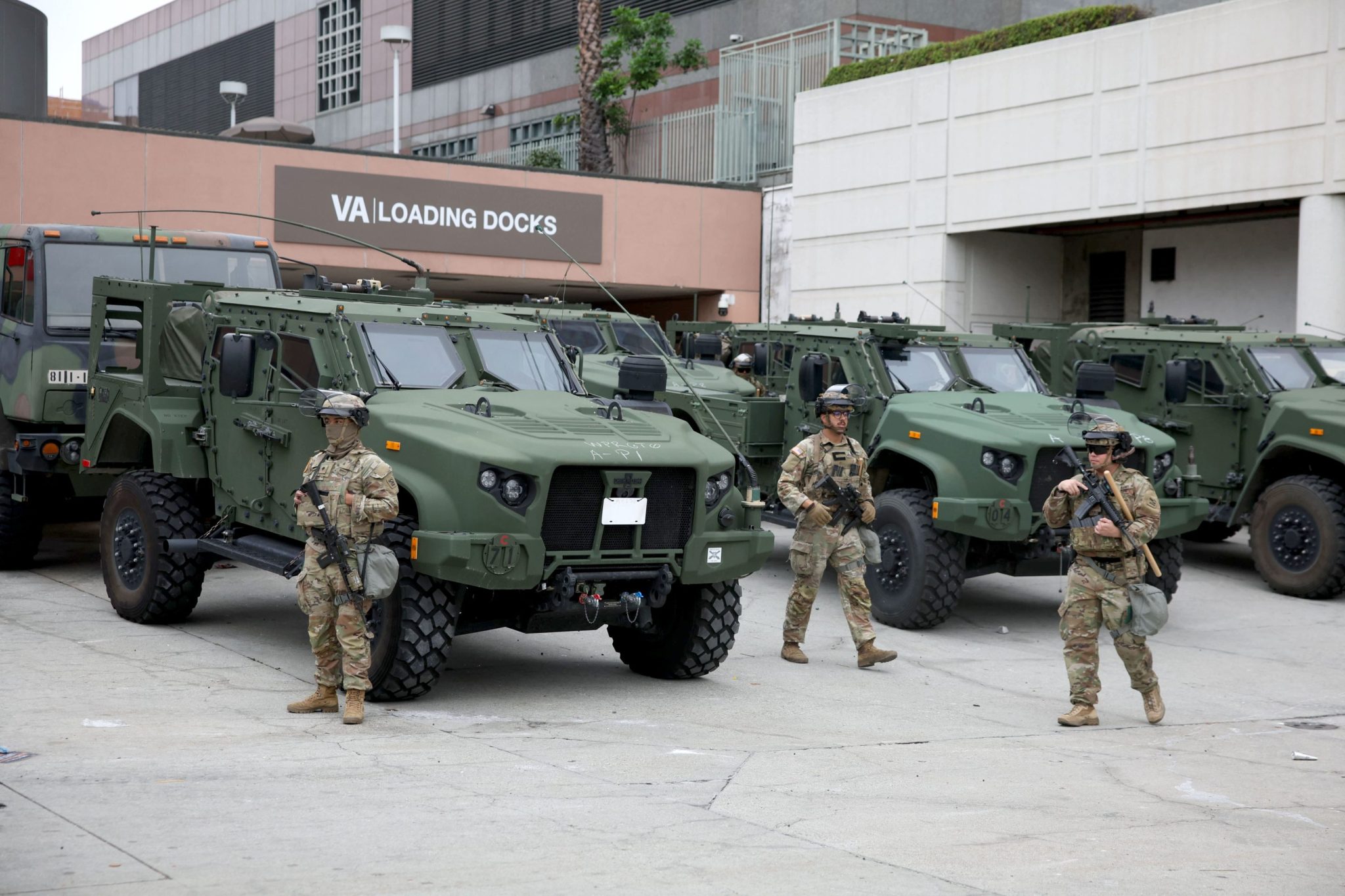- The California National Guard troops that President Donald Trump deployed to the Los Angeles area in response to protests can only provide protection and logistical support to immigration agents there, according to Georgetown University law professor Stephen Vladeck. But that changes, if the Insurrection Act is invoked.
President Donald Trump’s decision to federalize California National Guard troops and deploy them to the Los Angeles area puts them in more of a support role, according to a legal expert.
On Saturday, Trump exercised his authority to place state National Guard troops under federal command in response to protests over Immigration and Customs Enforcement raids—over the objections of Gov. Gavin Newsom and local officials who said it’s unnecessary.
On Sunday morning, members of the 79th Infantry Brigade Combat Team, the largest combat unit in the California Army National Guard, began arriving in Los Angeles.
But the Posse Comitatus Act of 1878 largely prevents federal troops from engaging in civil law enforcement, Stephen Vladeck, a law professor at Georgetown University, wrote in his newsletter.
“All that these troops will be able to do is provide a form of force protection and other logistical support for ICE personnel,” he explained. “Whether that, in turn, leads to further escalation is the bigger issue (and, indeed, may be the very purpose of their deployment).”
There is an exception to the Posse Comitatus Act that would allow troops to take a more active role in law enforcement. The Insurrection Act, which has not been invoked yet, lets them “to execute the Laws of the Union, suppress Insurrections and repel Invasions.”
In theory, according to the Brennan Center for Justice, the Insurrection Act should be used only in a crisis that civilian authorities can’t handle, but “the law’s requirements are poorly explained and leave virtually everything up to the discretion of the president.”
At face value, Trump’s order to deploy California National Guard troops to Los Angeles is meant to protect Department of Homeland Security personnel from attacks, Vladeck explained.
While that represents a significant and unnecessary escalation, he added, it’s not by itself a mass deployment of troops into a U.S. city.
“That said, there are still at least three reasons to be deeply concerned about President Trump’s (hasty) actions on Saturday night,” Vladeck warned.
First, the presence of federal troops raises the risk of escalating violence. Second, there’s the possibility that the deployment of National Guard troops, even in a limited manner now, sets up more aggressive responses to similar protests later, perhaps even the Insurrection Act. Third, domestic use of the military can have “corrosive effects” on the troops, the relationship between federal and local/state authorities, as well as the relationship between the military and civil society.
“For now, the key takeaways are that there really isn’t much that these federalized National Guard troops will be able to do—and that this might be the very reason why this is the step the President is taking tonight, rather than something even more aggressive,” Vladeck said.
This story was originally featured on Fortune.com

